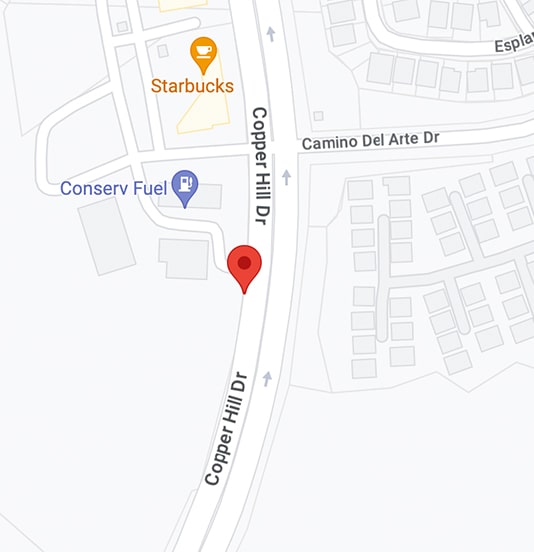Dental exams and checkups are essential in maintaining good oral health and a perfect smile. They are part of preventive dental care, helping to detect problems early before they worsen. At Valencia Advanced Dentistry at Copperhill Smiles, we understand how essential it is to take care of your oral health. For one, excellent oral health contributes to good overall health. For this reason, we encourage regular dental checkups and exams. If you wish to obtain these services in Santa Clarita, CA, we will attend to your needs without hesitation. You just need to contact us for a consultation.
Dental Checkups and Exams Overview
Dental checkups and exams entail an extensive oral health evaluation by a dentist. During these procedures, the dentist thoroughly examines the mouth for symptoms of:
- Oral cancer,
- Gum disease,
- Tooth decay,
- Other dental problems.
For a more comprehensive analysis, dentists often conduct X-ray imaging.
Regular checkups and exams are essential. They allow for early identification of dental problems and intervention, enabling prompt treatment to avert the advancement of dental issues. Also, they provide opportunities for patients to be educated on proper dental hygiene practices. Patient education contributes to maintaining good dental health and general well-being. Routine dental checkups and exams reduce the need to undergo extensive procedures, prevent discomfort, and encourage long-term oral health.
Most dental checkups and exams take about 45 minutes to complete. However, they may take shorter or longer based on your teeth condition and how long it has been since you last visited the dentist. If your dental health habits are good, the exam and checkup may be quicker. If it has been a while since you have been to the dentist, it will take longer. Also, more advanced dental health problems can take more than one appointment to address.
What To Expect During Dental Checkups and Exams
Usually, patients are confused about what to expect during dental examinations and checkups. Most patients go to the dentist merely to ask for dental cleaning and a checkup. A dental checkup is an assessment and examination of pre-existing diagnoses. A dental professional should examine your dental health before administering treatment. That is the case, even if they plan to do a simple cleaning. Your dental examination will entail the following:
A Review of Medical History
When you go to the dentist, they will require you to fill in a patient form. This form will provide your dental professional with critical information regarding your dental and medical history. Ensure you tell your dental professional about all the supplements and medications you take, plus their dosages. Some types of surgeries or medications might contraindicate particular dental treatments. That is why your medical history is essential to the success of any dental treatment.
Baseline Photographs and X-rays
X-ray imaging is necessary to assess and diagnose your dental health fully. This might include taking a dental X-ray utilizing a set of bitewings for all or some of your teeth or conducting a full-mouth panoramic X-ray. Additionally, the dentist may take intraoral and digital photos throughout the examination. These help them to show and better communicate what they find.
Comprehensive Examination
During your comprehensive exam, your dental professional evaluates your mouth. This includes inspecting your gums, teeth, cheeks, tongue, and other mouth tissues. Utilizing visual inspection and specialized instruments, the dental professional will assess your teeth’s health, checking for symptoms of cracks, decay, and other abnormalities. Also, they will evaluate your gum’s condition, looking for indications of bleeding, inflammation, or gum diseases. They might also conduct a screening for oral cancer to detect any abnormalities or suspicious lesions.
Apart from the visual exam, the dentist may perform diagnostic procedures to check your dental health further. They might conduct dental X-ray imaging to check your mouth’s internal structures, like tooth roots and jawbone.
X-rays assist in detecting issues like impacted teeth, bone loss, and cavities undetectable during a visual exam. The dentist may also conduct other diagnostic tests, like saliva testing or periodontal probing. Periodontal probing helps evaluate your gum health. On the other hand, saliva testing helps evaluate the risk of dental caries, periodontal disease, or neck and head cancer. The dental process may also analyze:
- TMJ (jaw) function.
- Bite alignment.
- Primary dental problems.
- Existing dental work (if you have any).
- Newly diagnosed conditions.
Proposed Treatment Plan
After the dentist has reviewed your medical history and examination findings, they will share and educate you on their recommended treatment options, if any. Some treatments might begin the same day if you need immediate care and attention. But often, the dentist will stage and map out your treatment plan and schedule it for another date. The dentist or their staff will check for and verify any insurance benefits that might help cover your treatment expenses.
Some patients might not require any treatment. The step that involves a treatment plan applies only to those with issues that need addressing or who want elective services like cosmetic dental procedures to enhance the appearance of their smiles.
If you do not need treatment, the dentist will provide individualized recommendations for improving or maintaining your dental health. This might include counsel on dental hygiene practices, lifestyle changes, or dietary habits. They might also suggest additional procedures or treatments like dental sealants or fluoride to safeguard your gums and teeth further.
Dental Cleaning
After the diagnostic procedures and exam, the dentist or a hygienist will conduct a professional teeth cleaning. They will use specialized equipment to scrap off tartar and plaque accumulation from the teeth surfaces, particularly in difficult-to-reach places.
Professional dental cleaning is straightforward and painless. The procedure is thorough. It targets all mouth areas you often miss during regular brushing at home. Some people do proper brushing, but there are difficult-to-reach places with debris. It is also difficult to clean off tartar with a toothbrush. The dentist will clean the gums and teeth to eliminate all the particles that may cause problems.
The specialized equipment the dentist uses clean way better than the toothpaste and toothbrush you use in the comfort of your home. The dental professional will further floss your teeth to clean the areas between them. Cleaning gums and teeth is essential for good dental health and overall well-being.
Professional cleaning assists in preventing gum disease, cavities, and other dental health problems, leaving your oral cavity rejuvenated and fresh. The hygienist or dentist will also polish the teeth to eliminate surface stains and guide you on proper flossing and brushing techniques. They will then set up your next visit to ensure you remain on course with your preventive oral care routine.
To keep your smile healthy, you should schedule a preventive care visit every six months. However, if you have heavy tartar accumulation or periodontal disease, the dentist will suggest you set up periodontal maintenance every three to four months.
Why Dental Checkups and Exams Are Important
Dental examinations and checkups benefit oral and general dental health in many ways. These include the following:
They Help Prevent Dental Issues
Prevention is usually always better than cure. Dental checkups and exams are essential in averting dental issues before they arise. During these visits, dentists can:
- Evaluate your dental hygiene routines,
- Guide you on proper flossing and brushing techniques and
- Suggest preventive techniques like dental sealants and fluoride treatments.
Taking proactive measures to maintain dental health will minimize the risk of developing gum disease, cavities, and other dental health problems.
They Help Detect Dental Issues Early Enough
Among the primary reasons dental checkups and exams are necessary is their role in detecting oral problems early. Routine visits enable prompt identification of issues like:
- Oral cancer.
- Gum disease.
- cavities.
- Other dental abnormalities.
Identifying these problems early allows timely intervention and treatment, stopping them from advancing into more serious and costly dental conditions.
They Help You Monitor Your Dental Health Status
Routine dental checkups and exams allow continuous observation of your dental health status. These appointments enable the dentist to track changes in oral tissue, gums, and teeth over time. By doing so, they can detect emerging trends or problems needing attention. This enables them to intervene on time and determine appropriate treatment options to address possible issues before they worsen.
They Help Preserve Your Smile
Dental checkups and exams are crucial for smile preservation and longevity. Addressing dental problems timely and maintaining proper oral hygiene habits helps safeguard your teeth from damage, tooth loss, and decay. Preventative treatments and regular cleaning assist in keeping your smile healthy, bright, and free from discoloration or unsightly stains. This enables you to smile in confidence for years.
They Help Maintain General Health
Your dental and general health are closely interconnected. Various studies connect poor dental health to systemic health-related conditions like diabetes. Respiratory infections and cardiovascular disease are also linked to poor dental health. You safeguard your smile and boost your general health by prioritizing routine dental checkups and exams. Healthy gums and teeth improve chewing function, digestion, and self-confidence. With these, you will enjoy a healthier and happier life.
The Help In Dental Care Evaluation
Dental examinations and checkups allow your dentist to assess your present dental care techniques. Based on the results of those techniques, the dentist will provide recommendations for future care to safeguard you from complications like gum disease and cavities.
How Frequent Should I Undergo a Dental Checkup and Exam?
Routine dental exams and checkups are essential for maintaining proper dental health. They can help identify possible issues early enough before they worsen. For example, tartar accumulation can cause gum disease and cavities if not treated. Generally, scheduling a dental exam and checkup twice annually can prevent these issues.
Standard practice suggests scheduling dental exams and visits twice a year. However, you want to consult your dentist to determine how frequently you should undergo an examination and checkup. The dentist may recommend that you schedule appointments more often. This will depend on factors like:
- Frequency of dental cavities.
- Smoking.
- Genetic vulnerability to root and tooth decay.
- The likelihood of developing gum disease.
Experts recommend that a child’s first dental visit for an exam or checkup occur by the time they turn one. It can also happen within six months of their first tooth growing.
A child’s first appointment usually lasts thirty to forty-five minutes. Based on their age, the appointment might include a full examination of their teeth and gum. The dentist may also examine their bite, jaw, and oral tissues. The exam helps check their growth and development. Children more susceptible to caries and other dental issues should see the dentist every 3-6 months.
Preparing for a Dental Exam and Checkup
Here are simple things you can do to prepare for a dental checkup and exam:
Communicate Explicitly
Notifying your dentist of any problems you have during your visit is crucial. It makes it simpler for them to do their job. Dental professionals are far from perfect. Consequently, they can miss a problem if the patient fails to air it. After your dentist diagnoses you, they will discuss available treatment options.
Also, you want to be 100% honest when completing the patient form and sharing your medical history. Some problems can be embarrassing. However, it is usually ideal to provide the dentist with as many details as possible. Also, do not be afraid to share about your dental health habits. Remember, your dentist is not there to judge you. They are there to work with you to enhance your routine and ensure oral health.
Arrive On Time
Dental professionals appreciate patients who arrive on time for their appointments. So, you want to respect the time scheduled for the visit. Note that the dental professional has to attend to other patients. Also, patients who arrive at the dental clinic a few minutes earlier for their visit experience minimal anxiety when undergoing treatments.
Determine the Budget and Payment Method
Visiting the dentist is stressful and overwhelming enough for certain people. Therefore, avoid the additional burden of worrying about what insurance coverage is available. Check your insurance policy before your visit, and determine what extent of your treatment your insurance will cover. Have a payment method such as a checkbook, credit card, and insurance card available before starting your journey.
Brush and Floss Before Your Appointment
The ideal way to prepare for a dental exam or checkup is to practice proper oral care. Dentists recommend brushing twice daily and flossing daily. Ensure you brush your teeth properly right before going to the dentist. The dentist or hygienist will indeed clean the teeth for you. However, removing plaque and food particles in advance helps. That way, they will concentrate more on the hard-to-clean places.
Brushing beforehand also minimizes the time the professional will spend cleaning your teeth. If there are fewer food particles and debris on the surfaces of teeth, problems like tartar accumulation are easier to detect and address. Proper dental hygiene is also a critical part of preventive dentistry. Try not to consume anything right before your dental visit.
Communicate Your Fears
Dental anxiety is a more prevalent issue than many people realize. If you tend to miss dental appointments due to phobias, ensure your dentist knows this fact. A dentist has many tools at their disposal to address dental anxiety. Nitrous oxide, for example, works excellently to relax patients.
Prepare a List of Questions
Before your appointment, list all your concerns and questions about your dental health. This will help your dental professional provide the most beneficial and accurate information. Additionally, it will guarantee that you do not overlook crucial matters.
The Cost of Dental Exams and Checkups
The cost of dental checkups and exams varies based on various factors. These include:
- the specific treatment conducted during the appointment, and
- the patients’ dental insurance plan.
Dental insurance covers many regular teeth cleanings. If the dentist recommends additional dental work, they will estimate the cost beforehand.
Insurance covers most dental procedures partially. Check your insurance plan documents beforehand to know what the insurance covers. You want to know about your insurance coverage to reduce the general cost of your dental exam or checkup. Also, determine any possible out-of-pocket costs you will have to pay.
When to Schedule a Dental Visit Between Routine Dental Checkups and Exams
Sometimes, you may ignore minor pain or tooth sensitivity and hope it will disappear on its own. However, just like maintaining regular dental checkups and exams is essential, it is also crucial to have dental problems checked as soon as possible. Any unusual bleeding or pain in your gums or teeth shows that it is time to visit a dental professional. Other symptoms to look out for include the following:
- Discoloration or swelling of gums.
- A numbness, swelling, or lump in your cheek, jaw, tongue, lips, or other mouth areas.
- A bad taste in your mouth or bad breath that does not go away.
- Loose teeth.
- Headaches that are generally worse when you wake up in the morning.
Contact a Professional Valencia Dentist Near Me
Dental checkups and exams are necessary to maintain optimal oral health. Understanding what to expect during your dental appointment will help relieve your anxiety about the visit. If you wish to learn more about these procedures, have a question, or wish to undergo the procedures in Santa Clarita, CA, we at Valencia Dentist will attend to you. Call us at 661-775-7717 to talk with one of our most experienced general dentists.




